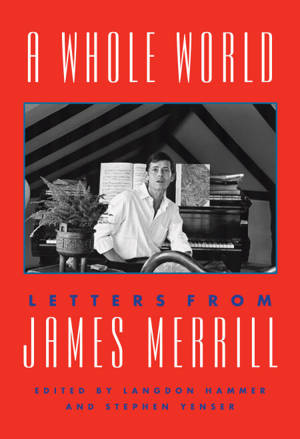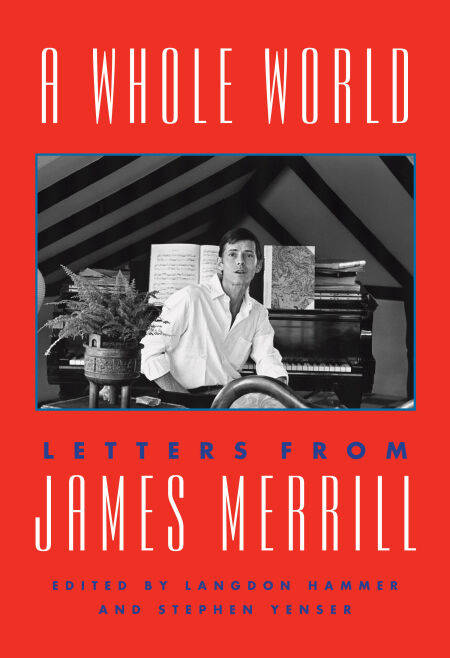
- Afhalen na 1 uur in een winkel met voorraad
- Gratis thuislevering in België vanaf € 30
- Ruim aanbod met 7 miljoen producten
- Afhalen na 1 uur in een winkel met voorraad
- Gratis thuislevering in België vanaf € 30
- Ruim aanbod met 7 miljoen producten
Zoeken
Omschrijving
A NEW YORK TIMES NOTABLE BOOK OF THE YEAR • The selected correspondence of the brilliant poet, one of the twentieth century's last great letter writers.
"I don't keep a journal, not after the first week," James Merrill asserted in a letter while on a trip around the world. "Letters have got to bear all the burden." A vivacious correspondent, whether abroad, where avid curiosity and fond memory frequently took him, or at home, he wrote eagerly and often, to family and lifelong friends, American and Greek lovers, confidants in literature and art about everything that mattered—aesthetics, opera and painting, housekeeping and cooking, the comedy of social life, the mysteries of the Ouija board and the spirit world, and psychological and moral dilemmas—in funny, dashing, unrevised missives, composed to entertain himself as well as his recipients.
On a personal nemesis: "the ambivalence I live with. It worries me less and less. It becomes the very stuff of my art"; on a lunch for Wallace Stevens given by Blanche Knopf: "It had been decided by one and all that nothing but small talk would be allowed"; on romance in his late fifties: "I must stop acting like an orphan gobbling cookies in fear of the plate's being taken away"; on great books: "they burn us like radium, with their decisiveness, their terrible understanding of what happens."
Merrill's daily chronicle of love and loss is unfettered, self-critical, full of good gossip, and attuned to the wicked irony, the poignant detail—a natural extension of the great poet's voice.
"I don't keep a journal, not after the first week," James Merrill asserted in a letter while on a trip around the world. "Letters have got to bear all the burden." A vivacious correspondent, whether abroad, where avid curiosity and fond memory frequently took him, or at home, he wrote eagerly and often, to family and lifelong friends, American and Greek lovers, confidants in literature and art about everything that mattered—aesthetics, opera and painting, housekeeping and cooking, the comedy of social life, the mysteries of the Ouija board and the spirit world, and psychological and moral dilemmas—in funny, dashing, unrevised missives, composed to entertain himself as well as his recipients.
On a personal nemesis: "the ambivalence I live with. It worries me less and less. It becomes the very stuff of my art"; on a lunch for Wallace Stevens given by Blanche Knopf: "It had been decided by one and all that nothing but small talk would be allowed"; on romance in his late fifties: "I must stop acting like an orphan gobbling cookies in fear of the plate's being taken away"; on great books: "they burn us like radium, with their decisiveness, their terrible understanding of what happens."
Merrill's daily chronicle of love and loss is unfettered, self-critical, full of good gossip, and attuned to the wicked irony, the poignant detail—a natural extension of the great poet's voice.
Specificaties
Betrokkenen
- Auteur(s):
- Uitgeverij:
Inhoud
- Aantal bladzijden:
- 736
- Taal:
- Engels
Eigenschappen
- Productcode (EAN):
- 9781101875513
- Verschijningsdatum:
- 5/04/2021
- Uitvoering:
- E-book
- Beveiligd met:
- Adobe DRM
- Formaat:
- ePub

Alleen bij Standaard Boekhandel
+ 20 punten op je klantenkaart van Standaard Boekhandel
Beoordelingen
We publiceren alleen reviews die voldoen aan de voorwaarden voor reviews. Bekijk onze voorwaarden voor reviews.







